 |  |  |
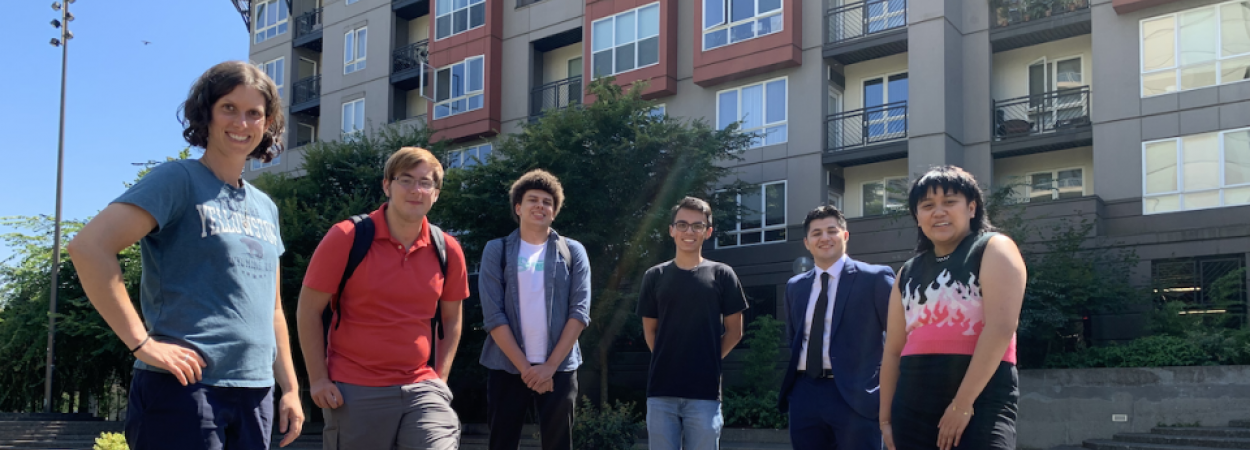
The Transportation Undergraduate Research Fellowship (TURF) program at Portland State University has hosted twenty-four fellows since 2017, and recently wrapped up its summer 2022 session. This year, six undergraduate researchers worked on projects aimed at improving the safety and efficiency of multimodal transportation systems. The research goals ranged from surveying pedestrian count programs and safety performance functions across the country, to reviewing case studies of tactical curb extensions and collecting pedestrian data at intersections.
Hosted by PSU’s Transportation Research and Education Center (TREC), the TURF fellows also experience a variety of workshops with PSU faculty and staff on research, communication and data science skills. They attended the 2022 Forth Mobility Roadmap Conference in June, and participated in networking events with the…
Read More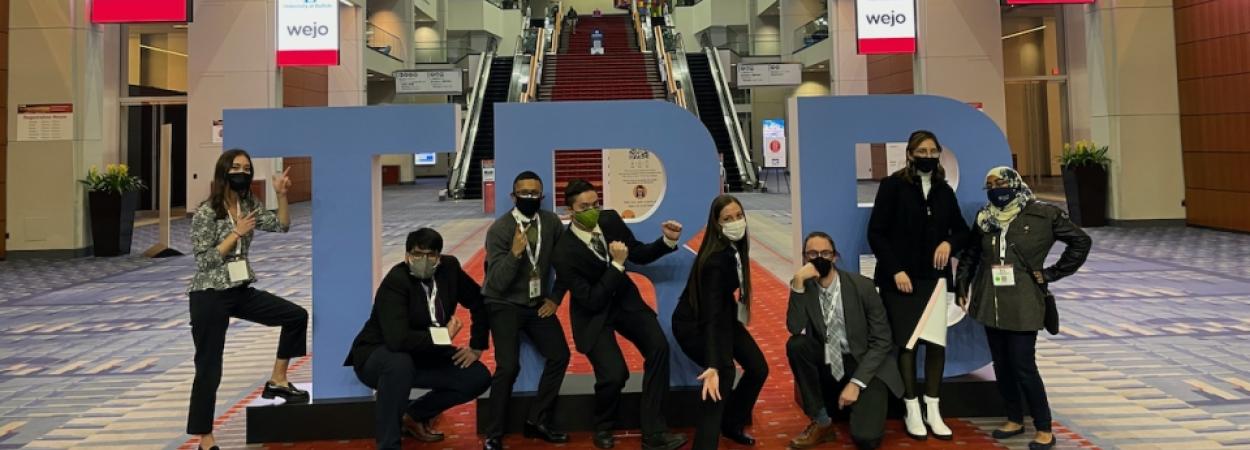
We're proud to announce that the Institute for Transportation Engineers (ITE) has awarded Portland State University's ITE Student Chapter, Students in Transportation Engineering and Planning (ITE-STEP), the 2022 Student Chapter Momentum Award. The award recognizes the student group for an outstanding year of accomplishments.
This year's ITE-STEP leadership made big strides in activating and energizing the student chapter. They hit the ground running after being elected, to prepare for Transportation Research Board (TRB) scholarship applications, through which they leveraged UTC funding from the National Institute for Transportation and Communities to send ten PSU students to attend the TRB annual meeting in Washington, D.C.
Read More"The award shows the dedication and commitment that the ITE-STEP board provided. D…
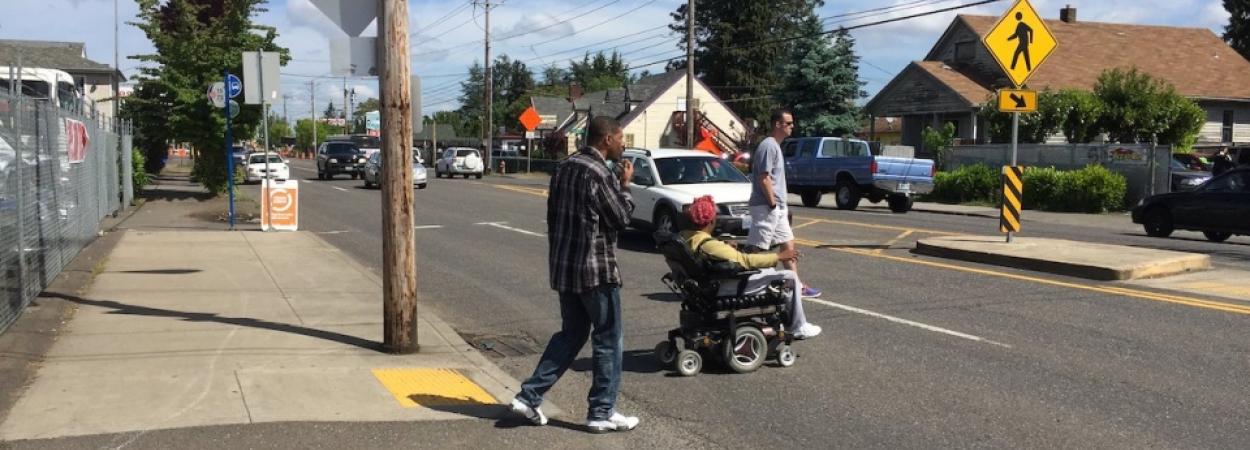
Cross-posted from Oregon State University
Research by the Oregon State University College of Engineering and Portland State University suggests a trio of roadway treatments would enable people age 65 and older to travel on foot more safely.
The research findings are important because older pedestrians are among the most likely to be killed in traffic accidents, according to the National Safety Council. In the United States in 2020 there were 709 pedestrian fatalities in the 65-74 age group – 20% of total road-user deaths in that age bracket. The project used data from Oregon collisions but is likely applicable in other areas, and it provides a framework for jurisdictions to develop their own safety recommendations, said David Hurwitz of the…
Read More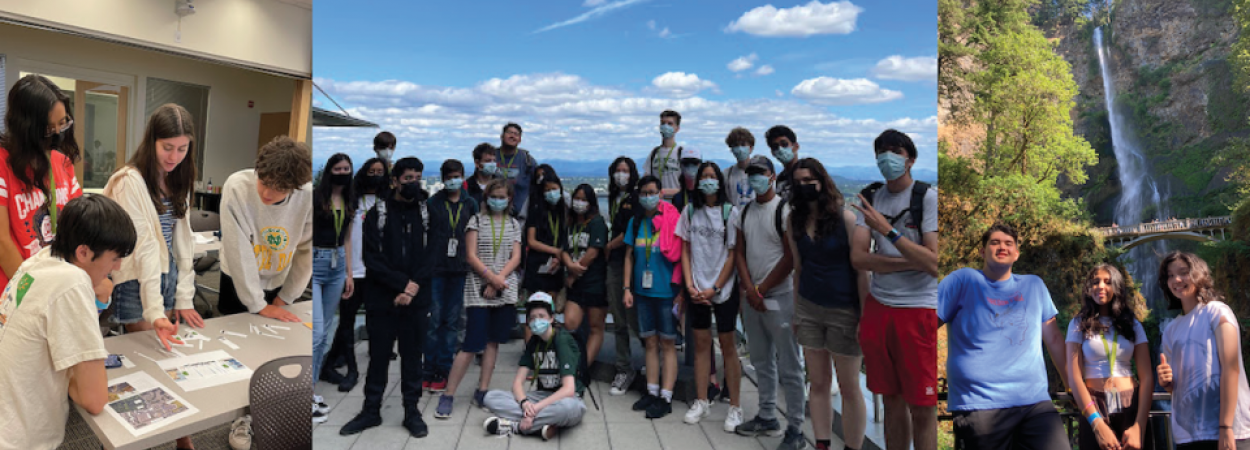
In 2019 Olivia Nell wasn't sure what she wanted to study in college. A junior in high school, she discovered a free transportation summer camp at Portland State University (PSU) for high schoolers. After seeing the behind-the-scenes workings of transportation in Portland, Oregon and meeting local professionals, she knew she wanted to pursue: engineering.
"I really enjoyed my time at the camp, and it helped me narrow down my educational interests. I am now in my third year of college at Oregon State University studying mechanical engineering, hoping to focus on renewable energy," Olivia said.
This summer she returned to the camp as a counselor to mentor the next cohort of Oregon high school students. She is one of five past students to do so.
"Three of our counselors this year were past camp students. I think that in itself speaks to the importance of this camp in drawing people to the trans…
Read More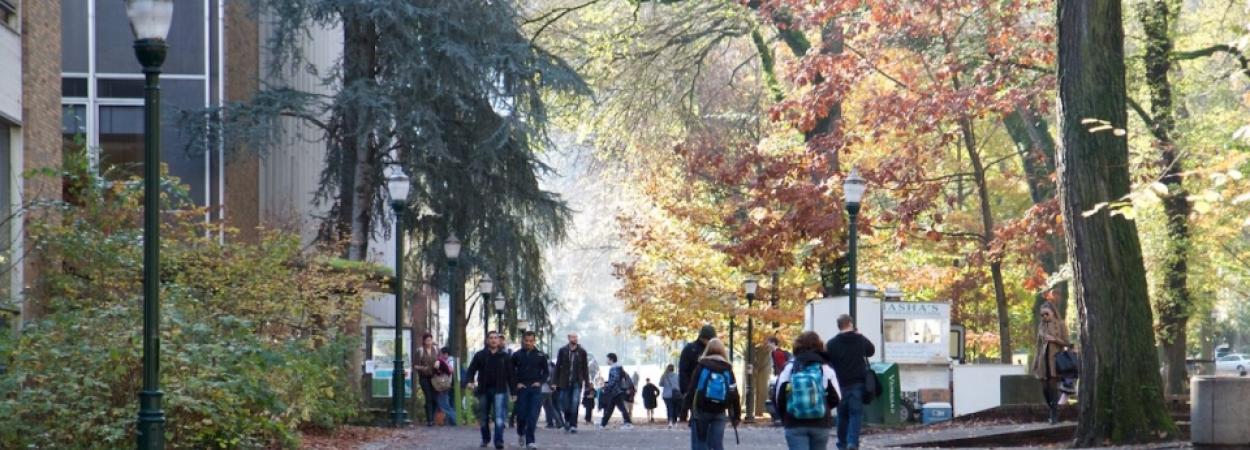
The fall term at Portland State University starts September 26, and registration opens September 6 for non-degree students. (Students who are already enrolled in a PSU degree program can register online now.) Lifelong learning is a guiding principle of PSU, and anyone interested can take transportation courses through the non-degree application process or as a post-baccalaureate student. Taking a course can be a good way to see if one of our graduate degree programs is right for you. Check out the course offerings below to see what's available this fall.
See PSU’s COVID-19 Student Resources for the latest info on our campus vaccinat…
Read More